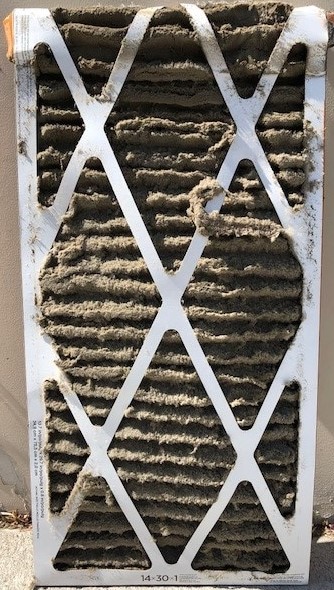Summer is a time for relaxation not sweating over your skyrocketing electricity bill. But let’s face it air conditioners are lifesavers in hot weather and they can also be energy guzzlers. You might be wondering does AC make your electric bill high? If your electric bill is looking more like a horror movie script than a summer breeze it might be time to investigate your AC. Here are 5 reasons why your air conditioner could be the culprit behind your high energy costs, plus a bonus tip:
Does AC Make Your Electric Bill High? 5 Culprits to why!

1. Clogged Air Filters
Imagine trying to breathe through a stuffed nose. That’s basically what happens to your AC when the air filters get clogged with dust and debris. The restricted airflow forces the system to work harder and longer to cool your home, using more energy in the process. To avoid this energy drain, check and replace your air filters regularly according to the manufacturer’s instructions (usually monthly or every other month).
2. Leaky Duct Work
Out of sight, out of mind? Not when it comes to your air ducts. Leaks in your ductwork can allow cool air to escape before it reaches your living space. This forces the AC to work overtime to compensate for the lost cool air, resulting in higher energy bills. Consider scheduling an inspection with an HVAC professional to identify and seal any leaks in your duct system.
3. Refrigerant on the Fritz
Your AC relies on refrigerant to absorb heat from your home and release it outside. Low refrigerant levels due to leaks or other issues can significantly reduce the system’s efficiency. A unit with low refrigerant will struggle to cool your home, leading to increased runtime and higher electricity bills. If you suspect a refrigerant leak, call an HVAC technician for diagnosis and repair.
4. Aging AC Unit
As with any appliance, air conditioners lose efficiency over time. An older unit simply won’t be as good at cooling your home as it once was, and it will use more energy in the process. Consider the age and efficiency rating of your AC system. If it’s nearing the end of its lifespan (usually around 10-15 years), replacing it with a newer, more energy-efficient model could save you money on your electric bill in the long run.
5. Thermostat Issues
Your thermostat is the control center for your AC system. An incorrectly programmed thermostat can wreak havoc on your energy consumption. Here are some tips for optimizing your thermostat settings for summer:
- Raise the temperature slightly when you’re away from home or sleeping.
- Consider using a programmable thermostat that automatically adjusts the temperature throughout the day.
- Avoid constantly adjusting the thermostat – each adjustment triggers the AC to turn on and off more frequently, which can be less efficient.
6. Poor Home Insulation and Drafty Doors and Windows
Your home is like a sealed container for cool air. If your insulation is poor, or you have drafty windows and doors, cool air can easily escape, forcing your AC to work harder to maintain the desired temperature. Investing in weather stripping, caulking drafty areas, and upgrading insulation in your attic and crawl space can significantly improve your home’s energy efficiency and reduce your reliance on the AC.
By addressing these potential culprits, you can keep your cool and your wallet happy this summer. Remember, a little AC maintenance and smart home improvements can go a long way in saving you money on your electricity bill. Call The Climate Master so we can help you with all of your AC Repair needs.
Tired of so many major home improvements. Check out we buys homes.
